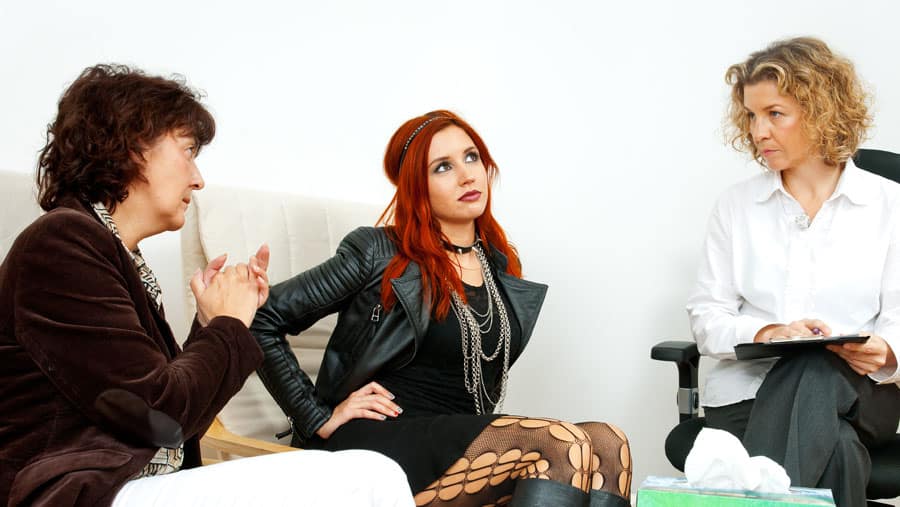If you are reading this article, the answer to the question “Does my child need rehab” could be yes. Most parents have a somewhat refined instinct when it comes to the safety and wellbeing of their children. If you think you might be getting red flags, we’re glad you’ve arrived at this blog post.
Your gut feelings and observations could be telling you that this is beyond a faze or simply experimentation. It is possible that your child could need drug or alcohol rehabilitation. That is a scary conclusion to come to for any parent, but we are here to help you. You are not alone.
We will walk you through support groups offered for parents that may help you discover whether your child may be using (and abusing) drugs or alcohol, how to intervene, and how to take care of yourself. Although there are many communities and resources centered on rehabilitation and family, here are some crucial tools to get you the support you need in this process.

Remember, the only way to determine whether anyone – child or adult – has a substance use disorder or is addicted to drugs or alcohol is through a thorough evaluation with a mental health provider.
Does My Child Have A Substance Use Disorder?
The first step in addressing your child’s substance abuse issues is determining whether they indeed have trouble with drugs or alcohol. When a classic symptom of substance abuse involves hiding drug or alcohol use, it can sometimes be challenging to tell whether your child has a problem.
There are other subtle signs you can watch for when it comes to your child using drugs or alcohol. Ask yourself:
- Is my child hanging around a questionable crowd?
- Has my child lost a significant amount of friends recently?
- Have I found drug or alcohol paraphernalia, such as pipes, bottles, spoons, or foils?
- Does my child seem sad, depressed, anxious, or irritable?
- Is my child being vague about their whereabouts?
- Have I caught my child in multiple lies about their whereabouts, who they’re with, and why they are acting a particular way?
- Are my child’s grades falling?
- Is there a history of drug or alcohol abuse in my family?

If you believe your child has an issue with drugs or alcohol based on your answer to any of these questions, try confronting them in a respectful and kind manner that exhibits your love and support. If your child isn’t receptive to your efforts, there is more you can do.
Al-Anon Family Groups
If you think your child has a substance abuse issue, it might be a good idea to find your closest Al-Anon meeting. Al-Anon is a well-established community that offers a program for family and friends of people with alcohol addiction. They offer an individual recovery program for those affected by a loved one’s addiction to alcohol, whether that loved one chooses to recognize it or not.
Alateen is an off-shoot of Al-Anon that focuses on teenage family members and friends of someone struggling with alcohol abuse.
Al-Anon is a worldwide community of fellowship that can help you confront your child’s substance abuse, help them get the help they need, and take care of yourself. Click here to find a local Al-Anon meeting.

Nar-Anon Family Groups
Nar-Anon is similar to Al-Anon, but is geared towards families struggling with drug abuse. Similarly, they are a worldwide fellowship and also offer a program to recover for those affected by a loved one’s substance abuse.
Click here to find a local meeting.
The first and most important part of recognizing your child’s need to go to rehab is accepting that you are not in control of their addiction. It is not your decision whether they seek treatment, but ultimately theirs.
Your role in all of this is to have as many resources possible so that when your kid is ready to seek help, you can support them on that path to recovery. You will know which treatment facility accepts their insurance, what programs are going to be offered, you will know what the beginning of it will look like, and you will understand, to whatever extent you can, what your child is about to experience.
What Happens In Rehab?
Detox
The first step of rehab is typically detox. Some centers offer inpatient detox while others ask that a client completes this part before checking in to their rehab center. These facilities are staffed 24/7 and aim to ease the transition from addiction to abstinence.
Detox generally lasts between three and fourteen days, depending on each individual’s response to drug or alcohol withdrawal. This first step helps to prevent your child from relapsing because of withdrawal while they go through treatment. Withdrawal management also ensures the highest level of safety and structure for your child while they are suffering from their most severe withdrawal symptoms.
Check-In
After your child checks-in, they will be educated on the nature of alcohol and drug abuse. Treatment programs aim to first break-through any apathy a client may have around sobriety and then work backward to the root of each individual’s dependence.
Substance abuse is often a combination of trauma and neurological response. Effective rehabilitation programs address the physical and emotional changes necessary for an individual to successfully overcome their addiction.
Substance abuse often goes hand-in-hand with a chaotic lifestyle – one that is representative of the internal chaos that addiction causes. Programs introduce stability to your child’s life to help reorient their daily routine.
Some of the physical changes that may be addressed include detox, changing locations and social groups, as well as introducing a healthy routine and sense of responsibility into their day-to-day life. These physical life changes help provide a foundation that underlines a program’s transformative emotional and mental work.
Emotional Work
Your child will receive counseling services while they adjust to the new normal of their day-to-day life. Treatment centers often offer a one-on-one addiction specialist as well as daily group therapy. Various therapies are also often incorporated into the more traditional program. These therapies may include EMDR, dialectical behavioral therapy and cognitive behavioral therapy.

Most people with substance abuse issues are never given the opportunity to address their addiction outside of rehab. These services are meant to provide a space where an individual can face their addiction, begin to address and understand it, and ultimately, overcome it. This is crucial in helping someone take responsibility for their choices and recognize what is necessary in order to change those choices once they leave the program. The emotional process of rehabilitation is the single most important part of their long term recovery.
Important Things For You And Your Child To Remember
First, drug rehabilitation is a choice. Those choosing to go through a rehabilitation program are not forced to complete this program. There are no locks on the doors and a client is always given the choice of whether they want to stay. Rehabilitation works best if the person going through the program is committed and open to treatment, but this doesn’t mean that your child won’t absorb something from their stay. Treatment is not meant to feel like a trap, but rather an opportunity to retrain oneself away from dependency.
Second, your child may relapse. Although many people get sober and stay sober the first time they try, a larger amount of people tend to relapse at least once. This may mean your child may need to go to treatment again. Remember, this is common. Do not be scared if relapse is part of your child’s story. There is still hope!
Some people only ever attend a rehabilitation program once. Some people go through several programs before attaining sobriety. It is all a process, one that is dependent on the daily choices of the person in that process.
Third, you play an important role child’s rehabilitation. Patience and understanding can help your child shed the shame they feel around their substance abuse and will support them in taking a proactive role in their recovery. However, your child’s ability to recover from drug or alcohol abuse is never your fault, and you should never feel bad about needing to set healthy boundaries with your child to protect your finances, emotional health, or the rest of your family.
Finally, there is no real guidebook to healing. The best we can do is prepare ourselves for the journey of recovery and take it one step at a time.
Resources
The Substance Abuse and Mental Health Services Administration
SAMHSA is a branch of the US Department of Health and Human Services. They offer numerous resources to support people struggling with substance abuse and for their loved ones and can even help you locate a great adolescent rehab program. They offer a national helpline that is free, confidential and available 24/7 for consultation and referral. The service is offered in English and in Spanish.
Referral Hotline: 1-800-662-HELP (4357)
Information Hotline: 1-800-487-4889
The Substance Abuse and Mental Health Services Administration has published two good visual resources on helping a loved one with substance abuse and how to get that conversation started with your child.
Getting the Conversation Started
SAMHSA also has several valuable resources, including more specific articles and videos that address loving someone who has an addiction.
Here at Hotel California By The Sea, we honor you in your love for your child and look forward to being a part of the recovery process for your family.

